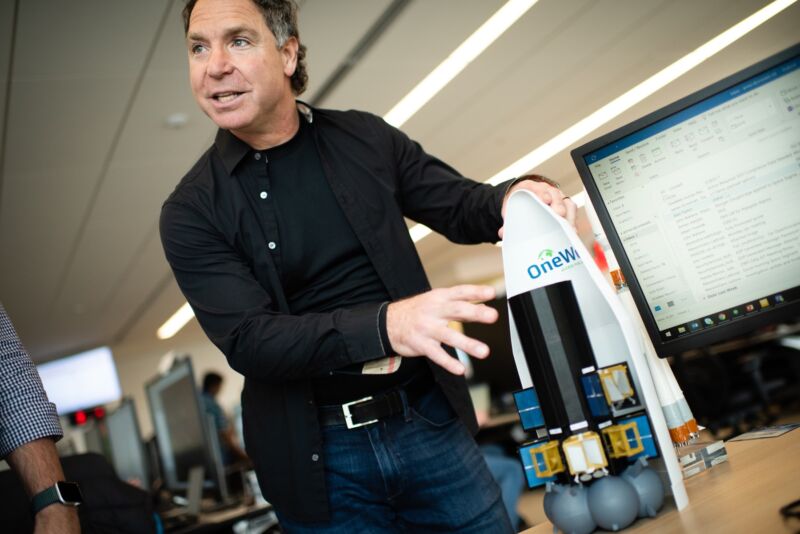
reader comments
89 with 68 posters participating
A company led by satellite-industry veteran Greg Wyler says it plans to launch about 100,000 small communication satellites into low Earth orbit. The company, E-Space, yesterday announced that it received a $50 million investment and that it will launch its first test satellites next month, with “mass production… slated for 2023.”
E-Space said it has “filings in hand for potentially over 100,000 secure communication satellites,” but there are suggestions that the company wants to launch over 300,000 satellites. Prime Movers Lab, which led the $50 million investment round, said that E-Space’s network will have “up to hundreds of thousands of secure communication satellites” and described the devices as “micro-satellites.”
E-Space said its platform will “help governments and large companies build space-based applications in a capital-light manner” for uses “ranging from secure communications to managing remote infrastructure.” E-Space says its satellites will use a peer-to-peer communication model, and the company’s website describes the plan as a “multi-application cloud server in space… powered by E-Space’s rapidly scalable optical 5G mesh network.”
E-Space’s announcement said the $50 million investment fully funds a “‘Beta 1’ launch of its first test satellites in March 2022 as well as its second ‘Beta 2’ launch later this year.” E-Space “is composed of two independent entities” based in France and the US. Wyler, E-Space’s founder and chairman, previously founded OneWeb and O3b Networks. OneWeb exited bankruptcy in November 2020 and is launching broadband satellites, but Wyler is no longer involved with the company.
published yesterday. “The more satellites we have, the cleaner space will be.”
Wyler also told the FT that E-Space satellites “will be designed to ‘crumple’ rather than break apart when struck,” the report said. “They will also ‘entrain’ any debris they encounter and automatically deorbit when a certain amount has been collected.” E-Space’s announcement said its plan calls for satellites that are “designed to fail into a high-drag configuration where they passively, and quickly, deorbit” and “fully demise upon re-entry into the Earth’s atmosphere.”
Design is apparently in the early stages, and it’s unclear which capabilities will be included in the first test satellites that E-Space plans to launch.






